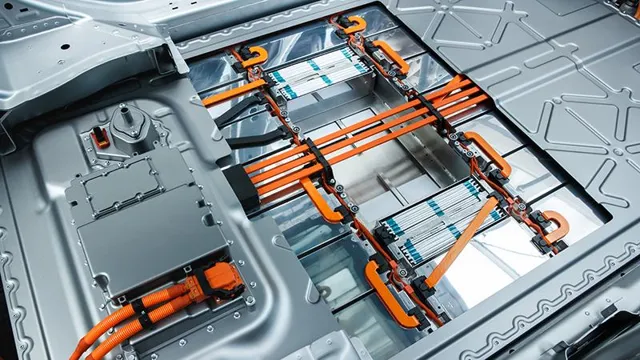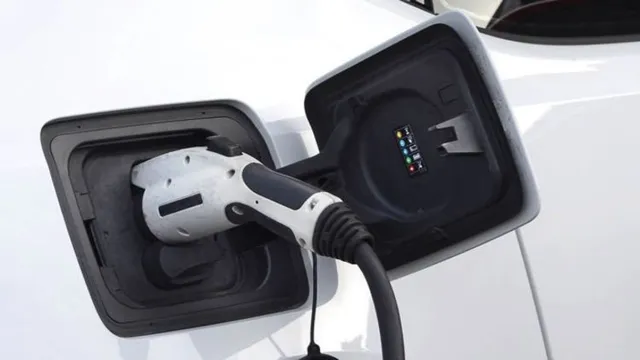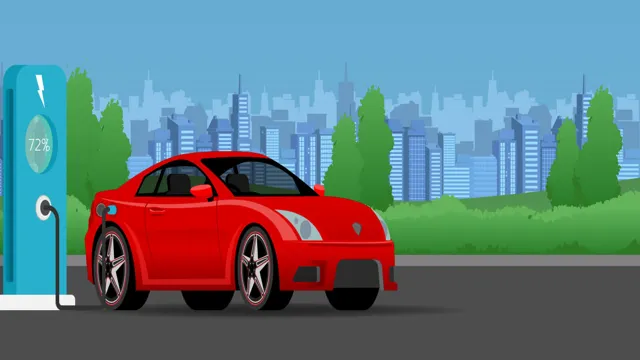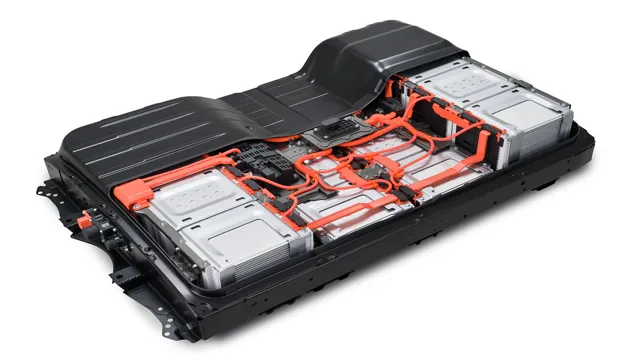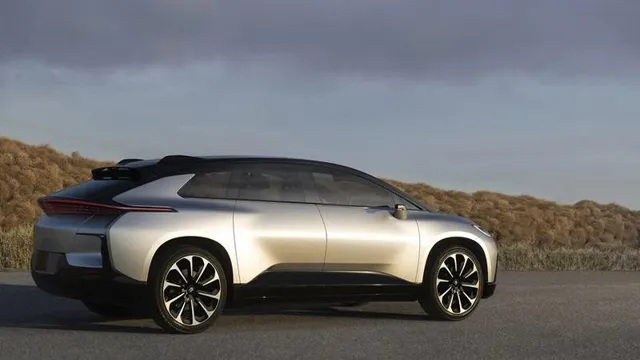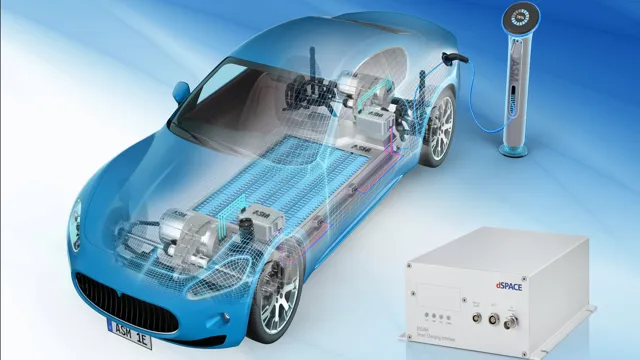Revolutionizing Electric Cars: Exploring the Latest Breakthroughs in Battery Technology
Electric cars have been making headway in the automotive industry for a while now. They’ve been praised for their eco-friendliness and cost efficiency, but one issue always seems to linger on – their battery technology. The battery has always been a challenge, with issues of limited range and long charging times plaguing electric vehicles for years.
However, exciting advancements in battery technology are taking place, which addresses these issues and sets the stage for a new era of electric cars. In this post, we’ll explore the latest electric car battery technology and how it’s set to transform the electric car industry.
Introduction: Why Electric Car Batteries Matter
Electric cars are gaining increasing popularity, and with that comes the need for the latest electric car battery technology. In fact, the batteries used in electric cars can make or break their performance and appeal. The latest breakthroughs focus on improving the energy density of lithium-ion batteries, which store energy to power electric motors.
This technology helps increase the driving range of electric cars, making them a practical option for people who want to reduce their carbon footprint and decrease their reliance on fossil fuels. Battery manufacturers are also working on making batteries safer, more reliable, and less expensive. As such, the latest electric car battery technology has great potential to revolutionize the automotive industry and positively impact the environment.
Understanding Electric Car Battery technology
Electric car batteries are a crucial component of electric vehicles. They determine the range of the vehicle and influence how long it takes to recharge. Unlike traditional gasoline or diesel engines, electric vehicles rely solely on battery power, and as such, the battery is a critical part of the vehicle.
The reason why electric car batteries matter is because of their characteristics. They are rechargeable, can be fast-charged, and are also recyclable. Furthermore, electric vehicle batteries store energy, which they release to power the motor that drives the car.
For electric vehicles to become fully adopted in the automobile market, manufacturers need to develop more advanced and efficient batteries to increase the range, reduce charging times, lower costs, and make electric vehicles more practical for a broader range of consumers. Therefore, the future of electric vehicles largely depends on the evolution of battery technology.
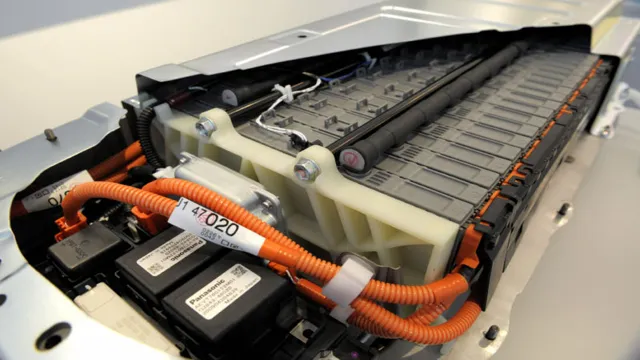
Electric Car Batteries vs Traditional Car Batteries
Electric Car Batteries Electric cars run on electricity, and the batteries that power them are fundamentally different from those used in traditional gas-powered cars. Electric car batteries are rechargeable, and they store energy in chemical form. They are powerful and long-lasting but tend to be more expensive than traditional car batteries.
One of the most notable differences is that electric car batteries are much larger and must be charged regularly to keep the car functioning. They are also much heavier, which can impact the car’s performance. Overall, the battery technology used in electric cars is continually evolving, making them a more viable option for environmentally conscious drivers looking to reduce their carbon footprint.
Despite their initial cost, electric car batteries offer significant long-term cost savings in terms of fuel and maintenance costs.
Advancements in Electric Car Battery Technology
Electric car technology has come a long way in recent years, particularly when it comes to battery power. The latest electric car battery technology shows significant advancements in terms of range, durability, and charging times. New lithium-ion batteries are being developed with a higher energy density, which means more power can be stored in a smaller space.
This is crucial for electric cars, as it allows for longer driving ranges and faster charging times. Additionally, solid-state batteries are being researched, which promise even better performance and safety. These batteries contain a solid electrolyte, which does not pose the same fire risks as liquid electrolytes used in current lithium-ion batteries.
As the cost of batteries continues to decrease, more consumers are expected to switch to electric cars, encouraging further research and improvements in battery technology across the industry.
Solid-State Batteries: The Future of Electric Cars?
As electric cars become more popular, advancements in battery technology are becoming increasingly important. One potential solution on the horizon is solid-state batteries. Unlike traditional lithium-ion batteries, which use a liquid electrolyte, solid-state batteries use a solid electrolyte.
This provides several advantages, including higher energy density, faster charging times, and increased safety. Companies such as Toyota and BMW are already working on developing solid-state battery technology, with the hopes of bringing it to market within the next few years. While there are still some challenges to overcome, such as production costs and durability, the potential benefits of solid-state batteries make them an exciting prospect for the future of electric cars.
Lithium-Air Batteries: A Promising Development
Lithium-air batteries have been touted as a promising development in the advancement of electric car battery technology. Unlike traditional batteries that rely on heavy metals, these batteries use lithium and oxygen to generate electricity, making them lighter and more efficient. The technology works by allowing lithium ions to react with oxygen from the air, producing electricity and lithium peroxide as a byproduct.
One of the biggest advantages of lithium-air batteries is their high energy density, which means they can store more energy and last longer than traditional batteries. However, there are still some challenges that need to be overcome before they become commercially viable, such as stability issues and the need for a constant supply of oxygen. But with further research and investment, we could see lithium-air batteries become a game-changer in the electric car industry, offering longer ranges and faster charging times.
Recycling and Sustainability of Electric Car Batteries
Advancements in Electric Car Battery Technology are constantly being made to improve the sustainability and recycling of these batteries. Current electric car battery technology is already a lot more sustainable than traditional car batteries, as they last a lot longer and require less maintenance. However, advancements are being made to create even more efficient and sustainable batteries.
For instance, scientists are researching various methods of recycling used batteries to minimize environmental impact and reduce waste. Moreover, there are efforts to create “second-life” applications for old batteries, such as energy storage devices for solar power systems and emergency backup power sources. Additionally, new battery technologies such as solid-state batteries are being developed, which promise to be even more efficient and better for the environment.
With the increasing popularity of electric cars, improving the sustainability of their batteries is crucial in reducing our carbon footprint and mitigating climate change.
Comparing Leading Electric Car Brands and their Batteries
Electric car manufacturers have made great strides in developing the latest electric car battery technology in recent years. One of the leading brands, Tesla, uses lithium-ion batteries that offer long-range capabilities and can be charged quickly. They also have a patented cooling system that prevents the batteries from overheating, which would negatively impact their lifespan.
On the other hand, Nissan’s Leaf uses a different type of battery technology, zinc nickel, which offers a lower range but is more affordable. Additionally, Porsche’s upcoming electric vehicle, the Taycan, will use an 800-volt system that will allow for faster charging times. Overall, these improvements in electric car battery technology are making electric cars more practical for everyday use and helping to reduce our dependence on fossil fuels.
Tesla’s Lithium-Ion Battery Technology
When it comes to electric cars, the lithium-ion battery technology is what powers these vehicles. Tesla, one of the leading electric car brands, has been at the forefront of developing and improving this type of battery. Compared to other brands, Tesla’s batteries are known for their high energy density, which means they can store more energy in a smaller space.
This gives Tesla vehicles longer ranges and allows them to perform better in terms of acceleration and speed. Additionally, Tesla’s batteries have a longer lifespan and can withstand more charging cycles than other brands. They also have advanced thermal management systems that prevent the batteries from overheating, which can be a safety hazard.
Overall, Tesla’s lithium-ion battery technology has set a high bar for other electric car brands to match or exceed.
Nissan’s Forward-Thinking Battery Innovation
When it comes to the world of electric cars, one of the most important factors to consider is the battery. It’s the heart of the car, and different brands have different approaches to making their batteries the best they can be. Nissan is one brand that stands out thanks to their forward-thinking battery innovation.
Their latest model, the Leaf, has a larger 62-kWh battery pack and can travel up to 226 miles on a single charge, making it a great option for long distance driving. Comparing it to other leading electric car brands like Tesla and Chevrolet, it’s clear that Nissan is keeping up with the competition and making great strides in battery technology. The Leaf’s battery is covered by an 8-year/100,000-mile warranty and is made with high-quality nickel-manganese-cobalt chemistry.
Plus, Nissan has been working on developing innovative ways to recycle old batteries. Overall, Nissan’s battery technology is certainly something to keep an eye on as they continue to push the limits of what’s possible in the world of electric cars.
Conclusion: Electric Car Battery Technology for the Future
In conclusion, the latest electric car battery technology is a testament to the power of innovation and determination. With advancements in battery chemistry, materials science, and manufacturing processes, we’re now seeing electric vehicles that can travel farther, charge more quickly, and perform at a level that was once thought impossible. Whether you’re a die-hard electric car enthusiast or a skeptic of the technology, there’s no denying that the future of transportation is green, efficient, and electrified.
So buckle up, charge up, and get ready for the most exciting ride yet.”
FAQs
What is the latest electric car battery technology?
The latest electric car battery technology is the lithium-ion (Li-ion) battery. These batteries have higher energy density, longer life, and faster charging times than previous battery technologies.
How long does it take to charge the latest electric car battery technology?
The charging time for the latest electric car battery technology varies depending on the battery’s size and capacity, as well as the charging station’s power output. Generally, it takes about 30 minutes to an hour to charge up to 80% capacity with a fast charger, while a full charge can take up to 8 hours with a Level 2 charger.
Are electric car batteries environmentally friendly?
Yes, electric car batteries are environmentally friendly since they produce zero emissions and are recyclable. However, the production process for battery materials such as lithium, cobalt, and nickel can have negative environmental impacts if not responsibly sourced and managed.
Can the latest electric car battery technology power long-distance driving?
Yes, the latest electric car battery technology can power long-distance driving with the help of fast-charging infrastructure. Many electric vehicles now have ranges over 300 miles on a single charge, and with the development of more fast-charging stations, long-distance travel can be easily accessible and reliable.
